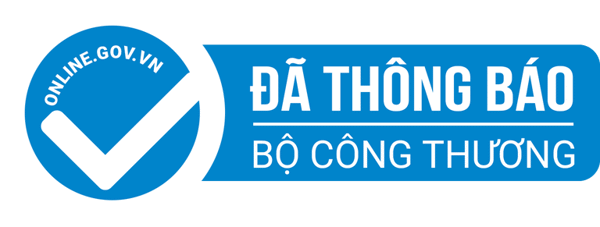- Emerald Shores Evolve: Ghana’s forward momentum, featuring breaking news in ghana today, spotlights innovative financial inclusion initiatives and a surge in eco-tourism.
- The Rise of Digital Finance and Financial Inclusion
- Expanding Access to Credit for Small and Medium Enterprises (SMEs)
- The Role of Mobile Money Interoperability
- Eco-Tourism Boom: Showcasing Ghana’s Natural and Cultural Heritage
- Community-Based Tourism Initiatives
- Sustainable Tourism Practices and Conservation Efforts
Emerald Shores Evolve: Ghana’s forward momentum, featuring breaking news in ghana today, spotlights innovative financial inclusion initiatives and a surge in eco-tourism.
Breaking news in ghana today centers around a significant surge in financial inclusion initiatives coupled with a remarkable expansion of eco-tourism opportunities. Ghana is rapidly positioning itself as a beacon of progress in West Africa, attracting international investment and fostering a more inclusive economic environment. Recent policy changes and technological advancements are driving these positive trends, promising a brighter future for citizens and sustainable growth for the nation as a whole. These developments are not merely economic shifts; they represent a fundamental transformation in the Ghanaian landscape, opening doors for innovation and empowering local communities.
The government’s commitment to digital infrastructure and financial literacy programs is particularly noteworthy, actively engaging previously underserved populations. Simultaneously, increased awareness of Ghana’s rich biodiversity and cultural heritage is bolstering its appeal as a leading eco-tourism destination, providing new avenues for economic diversification and job creation.
The Rise of Digital Finance and Financial Inclusion
Ghana has experienced remarkable growth in digital finance over the past several years, driven by the wide adoption of mobile money and innovative fintech solutions. This expansion is particularly impacting rural communities, providing access to financial services previously unavailable. The Bank of Ghana has been instrumental in fostering a regulatory environment that encourages innovation while safeguarding consumer interests. The focus on interoperability between different mobile money platforms has also been vital, allowing for seamless transactions across the country. This digital revolution is not simply about convenience; it represents a critical step towards reducing poverty and promoting financial stability.
Several key initiatives are fueling this growth, including government support for fintech startups and programs designed to educate citizens on the benefits of digital financial services. Furthermore, the increasing availability of smartphones and affordable data plans has made it easier for people to access these services. The drive for inclusive financial systems also improves transparency and accountability within the economy.
| Financial Inclusion Metric | 2018 | 2023 (Estimate) |
|---|---|---|
| Adults with a Mobile Money Account | 38% | 72% |
| Adults with a Bank Account | 35% | 48% |
| Volume of Mobile Money Transactions (USD Billions) | 5.4 | 14.1 |
Expanding Access to Credit for Small and Medium Enterprises (SMEs)
A major challenge for economic growth in Ghana has traditionally been limited access to credit for small and medium enterprises (SMEs). These businesses are the backbone of the economy, representing a significant portion of employment and contributing substantially to GDP. However, they often struggle to secure financing from traditional banks due to stringent collateral requirements and high interest rates. Recent efforts have focused on addressing this issue through the introduction of alternative lending platforms and the development of credit guarantee schemes. Fintech companies are playing a crucial role in this regard, leveraging data analytics and mobile technology to assess creditworthiness and provide tailored financial products. This broadening of financial services to SMEs is integral to the national economic plan.
These initiatives are not without their challenges. Ensuring cybersecurity and protecting consumers from fraud are paramount concerns. Furthermore, addressing the skills gap in the financial sector and promoting financial literacy are essential for sustaining the growth of digital finance. Investment in infrastructure also plays a key role, especially to bridge the gap between rural and urban areas.
The government’s commitment to simplifying business registration processes and reducing regulatory burdens is also creating a more favorable environment for SMEs to thrive. By directly removing the barriers which cause delays and extra costs, Ghana is signaling its willingness to expedite growth in the sector.
The Role of Mobile Money Interoperability
The introduction of mobile money interoperability in Ghana has been a game-changer, allowing users to seamlessly transfer funds between different mobile money operators. Prior to this development, transferring money between networks was a cumbersome and expensive process. The interoperability system has not only reduced transaction costs and increased convenience but has also fostered greater competition among mobile money providers, leading to innovation and improved service quality. This has also helped to boost financial activities in areas that were previously inaccessible. This interoperability has had a profound effect on the economy as a whole, making financial transactions seamless across the country.
The central bank’s proactive role in establishing the Ghana Interbank Payment and Settlement Systems (GhIPSS) and promoting the interoperability initiative has been instrumental in its success. GhIPSS has worked closely with mobile money operators and banks to ensure a smooth and secure integration of the systems. Along with these developments, security protocols have had to be upgraded. Security enhancements continue to be a top priority as the system scales.
The future of mobile money interoperability in Ghana looks bright, with plans to expand the system to include international remittances and facilitate cross-border payments. It’s also expected to further stimulate economic activity and promote financial inclusion across all segments of society.
Eco-Tourism Boom: Showcasing Ghana’s Natural and Cultural Heritage
Ghana’s tourism sector is experiencing a significant boom, driven largely by the increasing appeal of its eco-tourism offerings. From the lush rainforests of Kakum National Park to the pristine beaches along the Atlantic coast, Ghana boasts a diverse range of natural attractions. Coupled with its rich cultural heritage, including historic castles and vibrant traditional festivals, the country is attracting an increasing number of visitors from around the world. This surge in tourism is providing significant economic benefits, creating jobs, generating revenue, and contributing to local community development. Ghana really is making a shift to becoming a stellar destination for global travelers.
The government is actively investing in tourism infrastructure, including upgrading airports, improving road networks, and developing new attractions. Sustainable tourism practices are also being promoted to minimize the environmental impact of tourism and preserve the country’s natural resources for future generations.
- Kakum National Park: Canopy walkways offer breathtaking views of the rainforest.
- Elmina Castle & Cape Coast Castle: UNESCO World Heritage Sites that tell the story of the transatlantic slave trade.
- Mole National Park: Home to a diverse range of wildlife, including elephants, antelopes, and baboons.
- Labadi Beach & Busua Beach: Popular destinations for relaxation and water sports.
Community-Based Tourism Initiatives
Recognizing the importance of empowering local communities, Ghana is actively promoting community-based tourism (CBT) initiatives. CBT involves local communities in the planning, development, and operation of tourism activities, ensuring that they directly benefit from the economic opportunities generated by tourism. These initiatives typically include eco-lodges, guided nature walks, cultural tours, and handicrafts production. They provide visitors with an authentic and immersive experience while contributing to the conservation of natural and cultural resources. Promoting CBT takes a multifaceted approach that engages all involved parties.
In return for contributing to the economy, CBT also allows for communities to maintain their cultural identities. Moreover, it increases conservation efforts as local economies are incentivized to protect the environment supporting tourism. Several NGOs are working with local communities to develop CBT projects and provide training in tourism management, marketing, and hospitality. The success of CBT depends on strong partnerships between communities, government agencies, and the private sector.
These CBT initiatives not only provide economic benefits but also foster cultural exchange and promote a greater understanding between visitors and local communities. They represent a sustainable and equitable approach to tourism development that benefits both the environment and the people of Ghana.
Sustainable Tourism Practices and Conservation Efforts
Ghana is committed to adopting sustainable tourism practices to minimize the environmental impact of tourism and preserve its natural resources for future generations. This includes promoting responsible waste management, reducing water consumption, and protecting biodiversity. The government is working with tourism operators and local communities to implement sustainable tourism practices and develop eco-friendly tourism products. Conservation efforts are also being intensified, with a focus on protecting endangered species and restoring degraded ecosystems. Further investments are planned to support sustainable tourism and continue ecosystem restoration. Future plans intend to minimize resource expenditure and create an environmentally sensitive business environment.
The Ghana Tourism Authority is playing a key role in promoting sustainable tourism by providing training and certification in sustainable tourism practices. The authority is also working to raise awareness among tourists about the importance of responsible travel. Continuous monitoring and evaluation of sustainability initiatives are also underway to ensure effectiveness.
The combination of conservation policies and tourism initiatives demonstrates Ghana’s commitment to environmentally conscious growth that is mutually beneficial to the preservation of natural treasures and economic development.
- Develop a national eco-tourism strategy with clear targets and indicators.
- Invest in sustainable tourism infrastructure, such as eco-lodges and nature trails.
- Provide training and capacity building for tourism operators and local communities.
- Promote Ghana as a sustainable tourism destination in international markets.
- Monitor and evaluate the environmental and social impacts of tourism.
Ghana’s impressive momentum is propelled by ingenious financial incorporation endeavors and an upswing in environmentally conscious tourism. The steps taken to both foster digital finance and accent the country’s natural allure are setting it up for not only economic prosperity but a sustainable and inclusive future. As Ghana continues its progression, it is positioning itself as a leader in West Africa and a shining example of responsible and progressive development.


